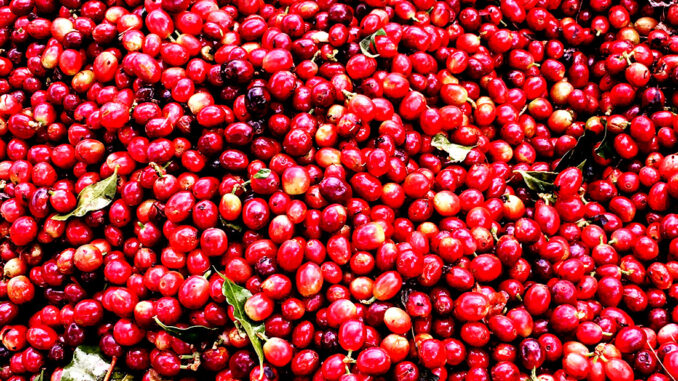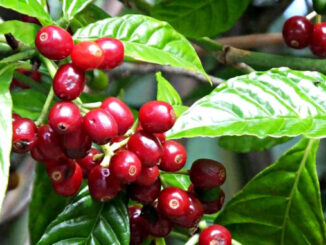
The Liberica–Robusta hybrid coffee variety is a rare interspecific cross that merges the Coffea liberica and Coffea canephora (Robusta) species.
This hybrid aims to blend the strength, yield, and disease resistance of Robusta with the hardiness, adaptability, and distinctive aroma of Liberica.
While not as widely cultivated or known as Arabica hybrids, Liberica–Robusta crosses play an important role in the future of sustainable coffee production.
🌿 Origin and Development
The first attempts to cross Liberica and Robusta date back to the 20th century, mainly in West Africa and parts of Southeast Asia.
Researchers sought to create a hybrid that could withstand:
- High humidity and heat
- Common coffee diseases like coffee leaf rust
- Poor or acidic soils
In countries like Ivory Coast, Uganda, Indonesia, and the Philippines, scientists experimented with various combinations of Liberica var. dewevrei and Robusta, producing hybrids that offered strong growth, high productivity, and improved resilience.
These hybrids are typically not used for specialty coffee markets but are valuable for local production, reforestation projects, and climate-resistant farming.
🌱 Botanical Characteristics
The Liberica–Robusta hybrid inherits mixed traits from both parent species, resulting in a robust and adaptable plant.
Main characteristics:
- Tree size: Medium to tall (up to 10–15 meters)
- Leaves: Broad, dark green, and glossy
- Cherries: Large and oval, ripening to deep red or purple
- Beans: Asymmetrical like Liberica but denser like Robusta
- Root system: Deep and strong, allowing excellent drought resistance
- Growth rate: Faster than Liberica but slower than Robusta
The trees tend to be hardier and more tolerant to varying soil and weather conditions, making them suitable for lowland tropical regions.
☕ Flavor Profile
Because of its hybrid nature, the flavor of Liberica–Robusta coffee can vary depending on growing conditions, processing, and roast profile.
Typical characteristics include:
- Heavy body and thick mouthfeel
- Low acidity
- Bold, earthy, and woody tones
- Hints of spice, dark chocolate, and nuts
- Lingering, slightly bitter finish
While not as refined or complex as Arabica, these hybrids produce a strong, aromatic cup — often described as having Liberica’s fruitiness with Robusta’s power.
🌍 Growing Regions
Liberica–Robusta hybrids are primarily cultivated in tropical lowland areas where both species can thrive.
They are found in:
- West Africa: Ivory Coast, Uganda, and Cameroon
- Southeast Asia: Philippines, Indonesia, Malaysia
- Experimental farms: India and Vietnam
In the Philippines, hybrids between Liberica var. Barako and Robusta are studied for their yield, resilience, and flavor stability, offering new potential for domestic coffee revival.
🌾 Advantages of Liberica–Robusta Hybrids
✅ High resilience to diseases such as leaf rust and root rot
✅ Strong adaptability to tropical climates and poor soils
✅ Good drought resistance due to deep roots
✅ Higher yield compared to pure Liberica
✅ Unique flavor balance between sweetness and bitterness
These traits make the hybrid a promising candidate for climate-resilient coffee farming and agroforestry systems.
⚠️ Disadvantages of Liberica–Robusta Hybrids
❌ Tall tree height makes manual harvesting difficult
❌ Inconsistent flavor across different farms and regions
❌ Limited commercial use in specialty coffee markets
❌ Less aromatic complexity compared to Arabica or Arabusta
❌ Difficult crossbreeding and propagation at scale
Because of these challenges, Liberica–Robusta hybrids are mostly grown for domestic consumption or experimental cultivation rather than for export.
☕ Uses in Coffee Blends
Liberica–Robusta hybrids are sometimes used to enhance body and aroma in commercial coffee blends.
They are especially popular in instant coffee and strong, traditional brews in tropical countries.
In blends, this hybrid can:
- Add depth and richness to mild coffees
- Reduce excessive bitterness from pure Robusta
- Improve crema and texture in espresso-style drinks
When roasted properly, it delivers a distinct, full-bodied flavor that appeals to drinkers who enjoy bold and rustic profiles.
🌍 Importance for the Future of Coffee
With climate change threatening traditional Arabica crops, hybrids like Liberica–Robusta are becoming increasingly valuable.
Their ability to thrive in heat, resist diseases, and grow in marginal soils makes them key players in future-proofing global coffee supply.
These hybrids are also essential for genetic diversity, helping breeders develop new varieties that balance quality, productivity, and resilience.
❤️ Final Thoughts
The Liberica–Robusta hybrid may not be as famous as Arabica or its hybrids, but it holds enormous potential for sustainable coffee farming.
By combining Robusta’s strength with Liberica’s hardiness and distinct flavor, this hybrid offers farmers a reliable, adaptive option for changing climates.
It’s a testament to how innovation and biodiversity continue to shape the world of coffee — ensuring that, no matter the conditions, a good cup will always find its way to the table. ☕🌱
DeliciousPath: Enjoyment in Every Moment
Explore the Gourmet on Board category for exquisite flavors that elevate your meals, even when you’re on a boat, and the Coffee category for aromatic coffee blends that make every moment special. DeliciousPath is here to turn every experience into something unforgettable!
























